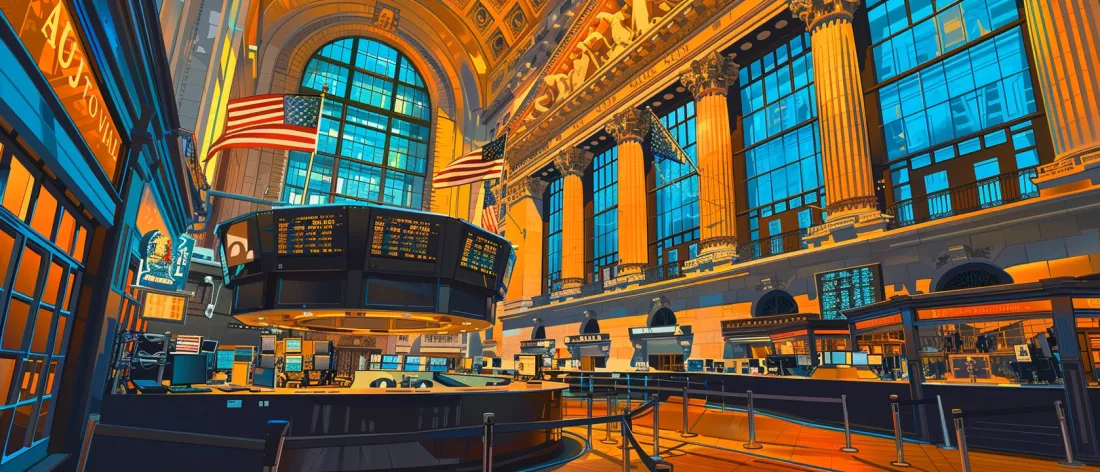

Bitcoin is the alarm system and the lifeboat.
I wonder how many really understand the bitter opposition by policymakers to Bitcoin and especially an ETF.
— MacroScope (@MacroScope17) March 17, 2024
Gary Gensler doesn't really hate it because of investor protection (that's only a minor reason). Elizabeth Warren doesn't actually think its criminal use is significant.…
This insight from MacroScope on X is such a good thesis that I would like to share it with you freaks in its entirety in today's letter. For those who did not open the tweet to read the whole thing, here is what MacroScope put forth:
I wonder how many really understand the bitter opposition by policymakers to Bitcoin and especially an ETF.
Gary Gensler doesn't really hate it because of investor protection (that's only a minor reason). Elizabeth Warren doesn't actually think its criminal use is significant. Obscure members of Congress who seem to pop up out of nowhere – with Bitcoin, of all things, strangely on their minds – and who repeat these tiresome objections (often in laughable letters to the SEC) are in many cases quietly pushed to do so by others, including from the Fed, who understand the real threat:
In a system that depends on irresponsible government spending (especially for perpetual war) and fiat printing to cover that irresponsibility, alarm bells cannot be allowed to work. There must be no pure price signals. And above all, an alarm bell must not also serve as a life-raft that's easily accessible to everyone, especially the general public, in the form of an ETF. There must be no escape hatch.
This is an unstated but important motivation for the longstanding resistance to Bitcoin and especially an ETF. It's also why the three-judge panel of a federal appeals court that in 2023 essentially forced the SEC to approve the ETFs may ultimately turn out to be the most unsung but consequential people in the history of U.S. financial markets. After that court's ruling, you could almost hear public policymakers and some influential private-sector figures – names that everyone knows, and some very important ones who stay out of the news – smack their foreheads and say, 'Those damn judges, don't they realize what they've done?'
The system's defenders have always understood that life-rafts and escape hatches can't be allowed. Here's Christine Lagarde talking about Bitcoin in 2021 (ostensibly about the need for global cooperation on regulation, but the larger point was clear): 'If there is an escape, that escape will be used.' Here's a seminal essay by Alan Greenspan in 1966, when he was still in the private sector:
An almost hysterical antagonism toward the gold standard is one issue which unites statists of all persuasions...In the absence of the gold standard, there is no way to protect savings from confiscation through inflation. There is no safe store of value. If there were, the government would have to make its holding illegal, as was done in the case of gold. The financial policy of the welfare state requires that there be no way for the owners of wealth to protect themselves.
I'd say the antagonism towards Bitcoin qualifies as "hysterical," wouldn't you? And in terms of "protection," in a political system defined by profligacy and incompetent policy (especially monetary policy in recent years), a free-trading asset that serves as protection and – via its price action – starkly highlights those two faults is resented and hated.
This is why the Bitcoin ETFs in particular are so important, and why they were bitterly resisted for so long and the SEC only approved them after being forced to do so by a court decision. Gold is usually slow-moving and can be suppressed – and even if it does rise to $2500 or $3000, DC and the Fed certainly won't like it, but it won't set off systemic alarms and the public mostly wouldn't notice. But if the ETFs help drive Bitcoin into the hundreds of thousands of dollars, the headlines will be screaming and the public will start asking uncomfortable questions. With the Fed desperate to cut rates and a potential second inflation wave looming, it's easy to see why, from a policymaker perspective, the timing of ETF approval could not have been worse. And now Bitcoin and the ETFs – as permanent, fast growing and highly visible canaries in the financial system – will be perpetual burrs under the policy saddle. - MacroScope
A telling postscript: Decades after Alan Greenspan wrote that essay about gold, Ron Paul asked him to autograph a copy of it as Fed chairman, and he asked if Greenspan wanted to add a disclaimer to it. Greenspan replied "I stand by every word" and signed it.
Bitcoin is becoming the alarm system that alerts people throughout the global economy that something has gone awry in the hyper-connected Rube Goldberg machine we like to refer to as the global financial system. MacroScope is verifying something that Tuur Demeester expressed on the TFTC podcast earlier this month.
"The world markets are going to start looking at Bitcoin as an advance indicator that something big is starting to happen." - @TuurDemeester pic.twitter.com/bTw8TI8o1T
— TFTC (@TFTC21) March 4, 2024
The world has been completely bereft of an accurate pricing signal for, one could argue, well over a century. Going all the way back to the signing the Federal Reserve Act in 1913. The Federal Reserve's ability to manipulate interest rates and the monetary base of the United States creates a massive disruption in the markets. This type of unnatural market force extends far beyond the borders of the United States. Every central bank around the world is engaged in the exact same type of monetary manipulation.
Since currencies are what individuals use to measure prices throughout the global economy it is trivial to corrupt proper pricing forces by stepping in with bank bailouts and suppressing interesting rates to incite investment. For over a century, this has been the way in which the world has worked and there hasn't been an option for the market to coalesce around an alternative to fiat currencies. Gold was reliable for millennia, but by the middle of the 20th century its supply had been hyper-centralized in vaults - many of which are controlled by governments - and it does not make a feasible currency in a world of 8 billion that is becoming increasingly digital.
The introduction of bitcoin to the market by Satoshi Nakamoto provides individuals with a money that is completely separate from the state and the central banks tied at its hip. A proper pricing mechanism has been reintroduced to the market; a free market money. And while it is still early days for bitcoin and it may not be the most mature and widely used pricing mechanism used throughout the global economy, it is certainly becoming more mature and gaining more adoption, which means it will only become a better pricing mechanism over time. Despite what I may think about the ETFs (don't let BlackRock and Coinbase safeguard your bitcoin), it is undeniable that they have opened up a wide avenue for larger swaths of capital to gain bitcoin exposure. These larger swaths of capital are flowing into bitcoin because they want exposure to an asset that is completely uncorrelated and unrelated to the fiat monetary system.

As more capital flows into bitcoin and the price begins to rise at a quicker pace due to the supply and demand dynamics embedded into the protocol, there will only be 21,000,000 bitcoin and it is a permissionless network that anyone can participate in, more and more people will become aware of bitcoin. They will have the intuition to understand that bitcoin's price must be rising dramatically for some reason and they will begin to ask questions that should have been asked a long time ago.
New entrants will come to learn that bitcoin is being more widely adopted and its price is rising dramatically because it has become abundantly clear to many people that something is systemically broken throughout the global monetary system. There is too much debt, not enough dollars, and no way of fixing the problem from within. The solution to a world run amok via central planning that has created a world of debt serfdom doesn't come in the form of more interest rate manipulations and monetary base expansion or detraction, it comes from a monetary good that is completely outside of that system. You don't begin to try to rebuild the ship when it becomes obvious that it is about to sink. You hop on the lifeboat. And as MacroScope points out, bitcoin is the alarm bell and the lifeboat.
The rising price alerts people that there is something wrong with their currencies and the permissionless nature of bitcoin provides them with an avenue to escape the inferno.
My advice to anyone reading this is that it's better to get on the lifeboat sooner rather than later.
Final thought...
Last week was a great week at the Bitcoin Commons in Austin, Texas. We're going to win.



